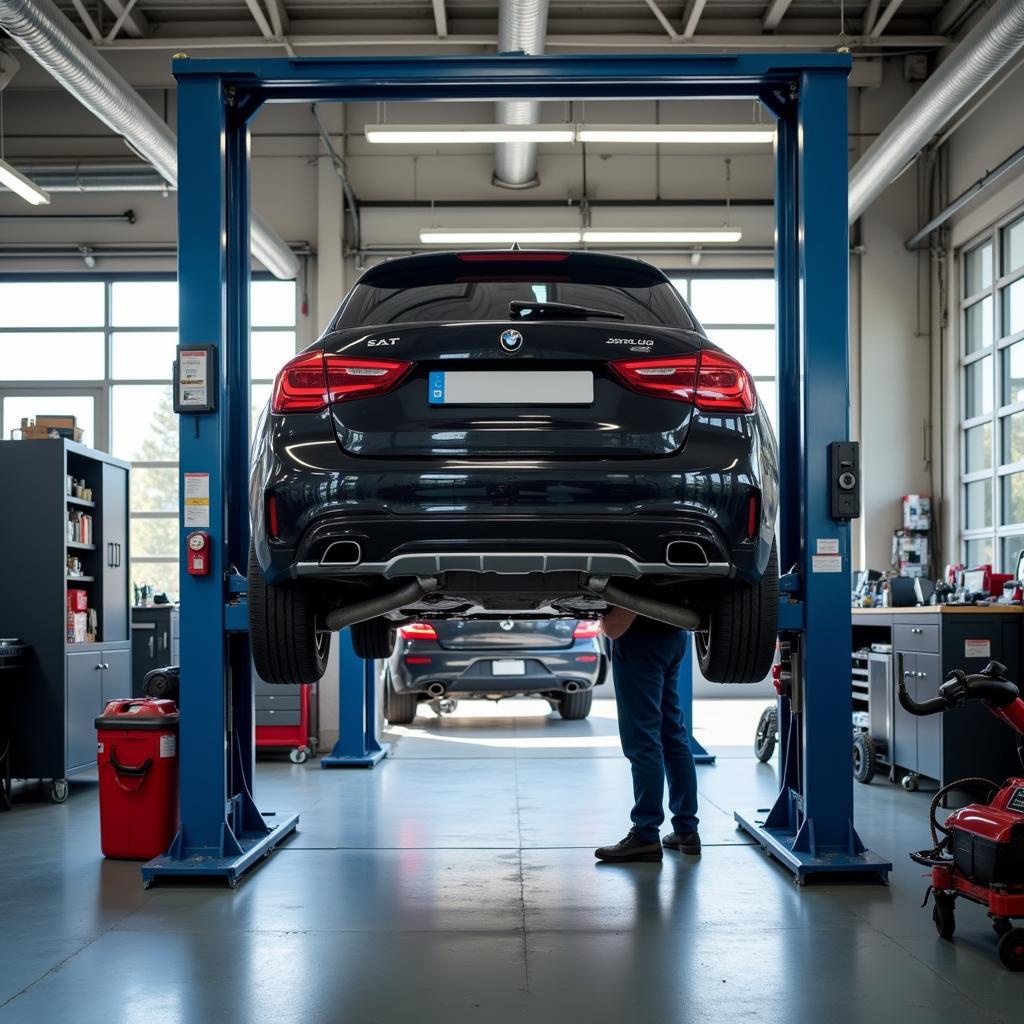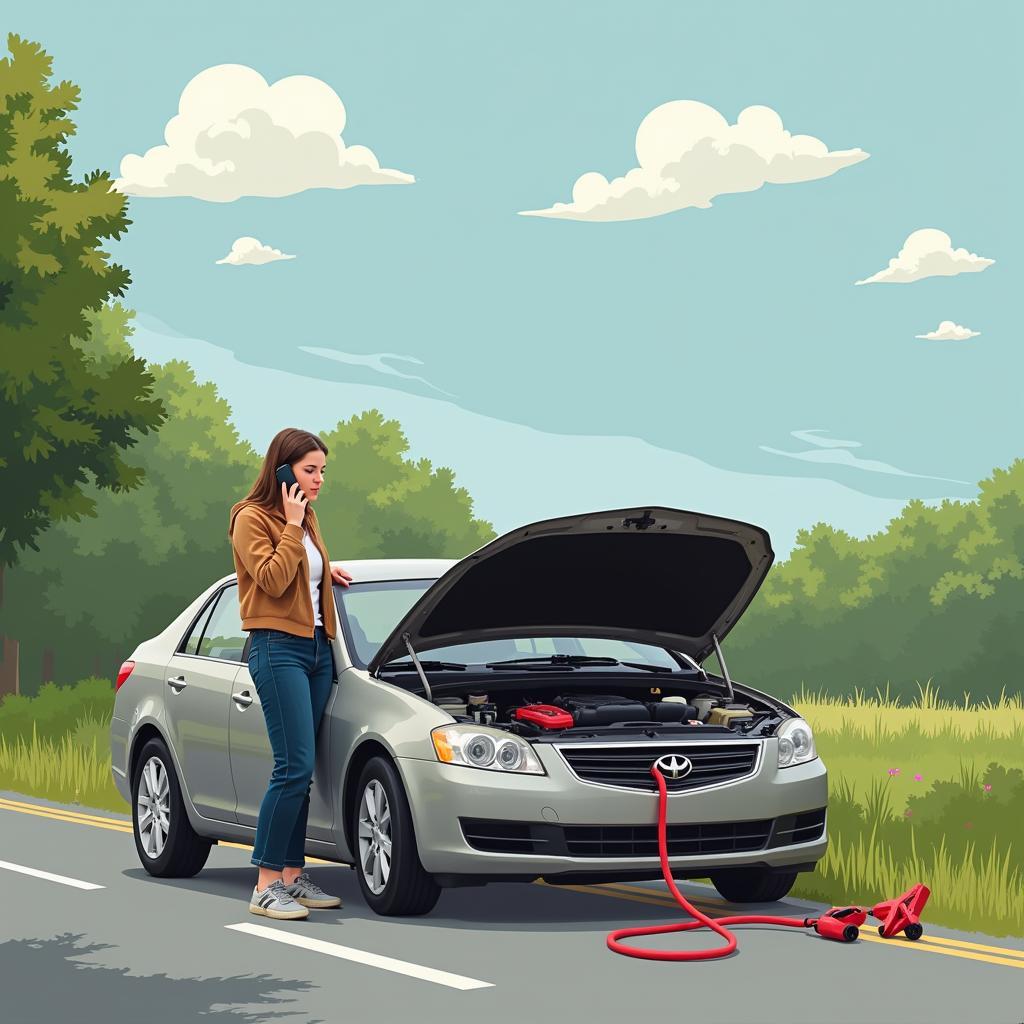How Often Should You Get Car Serviced?
Maintaining your car can feel like a bit of a guessing game. While it’s easy to know when your gas tank is nearing empty, the answer to “How Often Should You Get Car Serviced” can be less obvious. Don’t worry, this comprehensive guide will provide clarity and help you keep your car running smoothly for years to come.
Factors That Determine Car Service Frequency
There’s no one-size-fits-all answer to how often you should get your car serviced. Several factors come into play, including:
- Manufacturer Recommendations: Your car’s owner’s manual is your best friend. It outlines specific service intervals recommended by the manufacturer based on your car model and make.
- Driving Conditions: Frequent stop-and-go city driving, driving in extreme weather conditions, or hauling heavy loads puts more stress on your vehicle, requiring more frequent servicing.
- Mileage: The more you drive, the more wear and tear your car experiences. High mileage vehicles often require more frequent servicing than those driven less.
- Vehicle Age: As cars age, components naturally wear down. Older vehicles may require more frequent check-ups and maintenance to address age-related issues.
 Car Service Checklist
Car Service Checklist
General Car Service Intervals
While it’s essential to consult your owner’s manual for specific recommendations, here are some general guidelines:
Every 3,000 miles or 3 months:
- Oil and Filter Change: This is the most frequent service your car needs. Regular oil changes are crucial for lubricating engine components and preventing premature wear.
- Tire Pressure Check and Rotation: Proper tire pressure ensures optimal fuel efficiency and handling. Rotating tires evenly distributes wear, extending their lifespan.
Every 6,000 miles or 6 months:
- Air Filter Replacement: A clogged air filter restricts airflow to the engine, reducing performance and fuel economy.
- Fluid Level Check: This includes brake fluid, coolant, power steering fluid, and windshield washer fluid. Maintaining proper fluid levels is crucial for the smooth and safe operation of your vehicle.
 Car Being Serviced
Car Being Serviced
Every 12,000 miles or 12 months:
- Spark Plug Replacement: Worn spark plugs can cause misfires, reducing engine performance and fuel efficiency.
- Brake Inspection: Regular brake inspections ensure your safety and can help you avoid costly repairs down the line.
Every 30,000 miles or 24 months:
- Coolant Flush: Flushing the coolant system removes contaminants and prevents corrosion, ensuring optimal engine temperature.
- Transmission Fluid Change: This service helps maintain smooth gear shifts and prevents transmission damage.
“Don’t wait for a warning light to illuminate on your dashboard before taking action. Proactive car maintenance is always better than reactive repairs,” says John Smith, a seasoned automotive expert with over 20 years of experience in car servicing.
Recognizing Signs Your Car Needs Servicing
Besides adhering to the recommended service intervals, it’s important to pay attention to your car and notice any unusual signs. These could indicate a potential problem that needs attention:
- Unusual Noises: Squealing brakes, knocking sounds from the engine, or a grinding noise when shifting gears are all red flags.
- Fluid Leaks: Check your garage floor or driveway for any signs of fluid leaks. Different colored fluids indicate different problems.
- Warning Lights: Never ignore dashboard warning lights. They are your car’s way of telling you something is wrong and needs attention.
- Changes in Performance: If your car starts vibrating, pulling to one side, or experiencing reduced fuel efficiency, it’s time for a service check.
 Car Dashboard Warning Light
Car Dashboard Warning Light
The Importance of Regular Car Servicing
Regular car servicing might seem like an added expense, but it’s an investment that pays off in numerous ways:
- Increased Safety: Regular maintenance ensures that all safety-critical components, such as brakes, tires, and lights, are in top working condition, keeping you and others safe on the road.
- Improved Performance: A well-maintained car runs more efficiently, delivering optimal fuel economy, smoother handling, and better overall performance.
- Extended Lifespan: Regular servicing can significantly extend the lifespan of your vehicle by preventing minor issues from developing into major problems.
- Higher Resale Value: A car with a well-documented service history is more appealing to potential buyers and commands a higher resale value.
Conclusion
Understanding how often you should get your car serviced is essential for responsible car ownership. By following the manufacturer’s recommendations, being aware of your driving habits and your car’s age, and recognizing potential warning signs, you can enjoy a safe, reliable, and enjoyable driving experience. Remember, regular car servicing is an investment that keeps you safe, saves you money in the long run, and ensures your vehicle stays in top condition for years to come.
FAQs
Q: What’s included in a basic car service?
A: A basic car service typically includes an oil and filter change, tire pressure check and rotation, fluid level check, and a visual inspection of brakes, belts, and hoses.
Q: Can I service my car myself?
A: While some car maintenance tasks can be done at home, it’s generally recommended to have your car serviced by a qualified mechanic, especially for more complex procedures.
Q: How much does a car service cost?
A: The cost of car servicing varies depending on the type of service, your car’s make and model, and your location. You can learn more about this in our article “[how much does it cost to service a car nz](https://carserviceo.com/how-much-does-it cost-to-service-a-car-nz/).”
Q: What is a car service schedule?
A: A car service schedule is a timetable that outlines the recommended service intervals for your specific car model, as specified by the manufacturer.
Q: Is it essential to follow the manufacturer’s service schedule?
A: Yes, following the manufacturer’s service schedule is crucial for maintaining your car’s warranty and ensuring its optimal performance and longevity. You can find out more about this in our article “what’s in a car service.”
Want to know more about specific services? Read our guide on “what should be done in car service” for a detailed breakdown.
Interested in learning “how to service the car” yourself? Check out our comprehensive guide!
If you own a trailer, our guide on “how to service a car trailer” will provide valuable insights.
Need assistance? Contact us on WhatsApp: +1(641)206-8880, or Email: [email protected]. Our 24/7 customer support team is always ready to help!

